'Deemak' review: A horror drama led by brilliant performances till the ghosts arrive
Director Rafay Rashdi's film haunts in ways it never intended
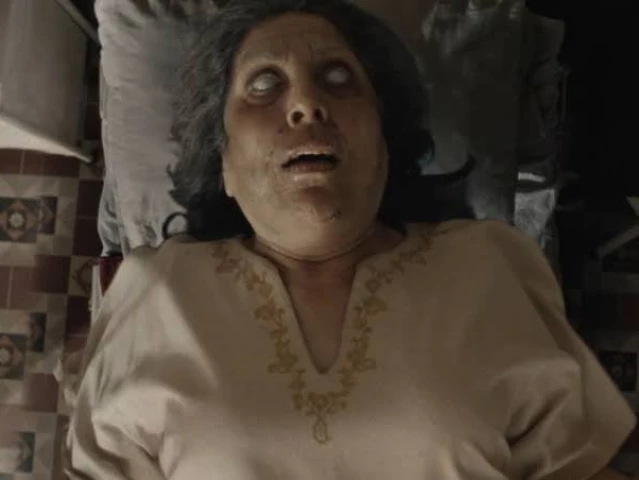
Without question, Deemak is the most divisive Pakistani release of the year. For those who still invoke “support local cinema” regardless of a film’s craft or coherence, this is perhaps the moment they’ve been waiting for. A harsher critique of director Rafay Rashdi’s horror-family drama might be too easy — were it not for the sobering state of Pakistani cinema.
When the only local competition is a film like Love Guru, hopes for a lively Eidul Azha at the movies are already dim. If audiences are weary of seeing Humayun Saeed and Mahira Khan replay the same formulas Hollywood created and Bollywood retired, Deemak is at least a departure. Rashdi deserves credit for venturing into a genre still novel in Pakistan’s mainstream — psychological horror — and for roping in A-listers like Faysal Quraishi, Sonya Hussaiyn, and Samina Peerzada, who are compelling enough to carry a lesser film.
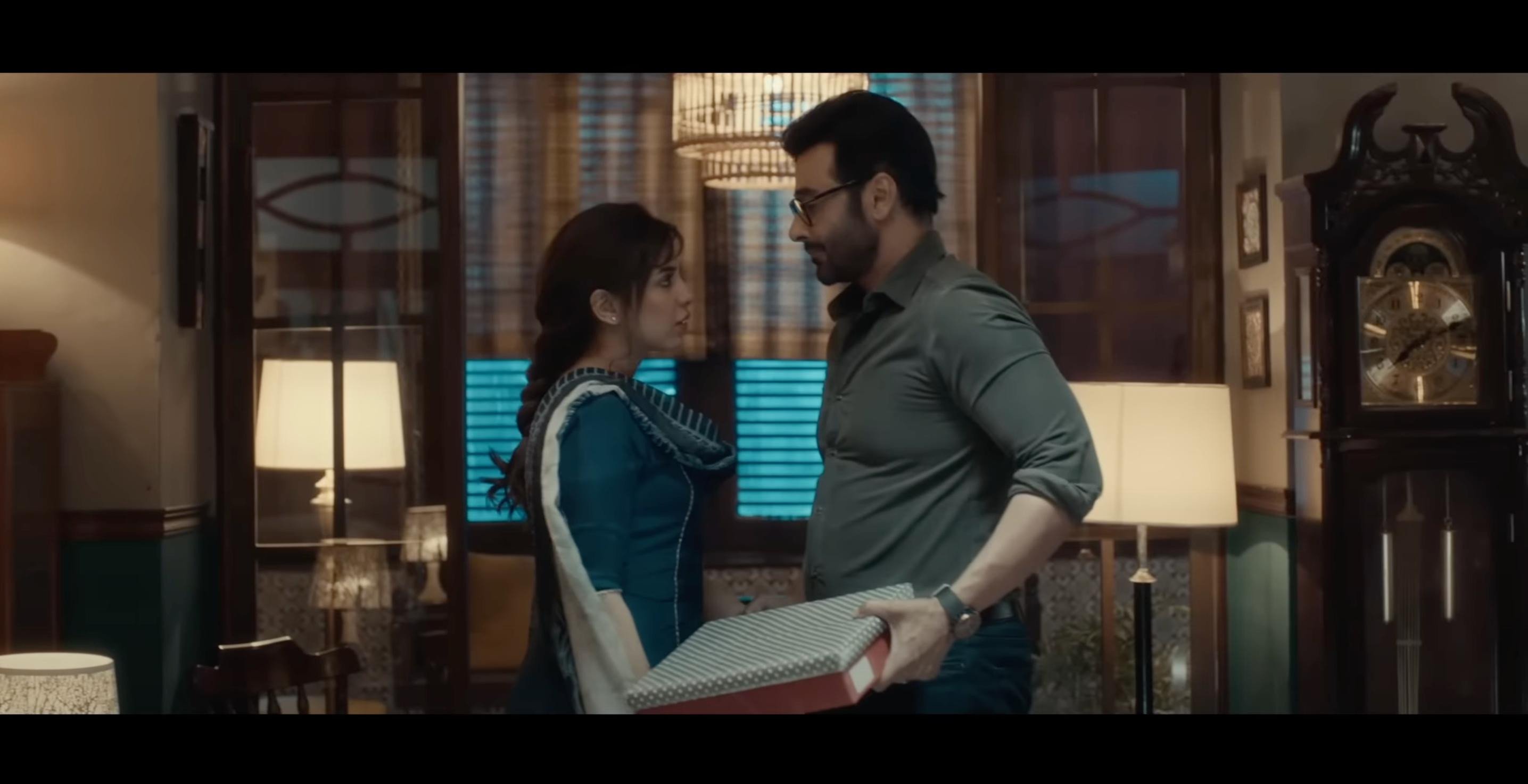
Unfortunately, there’s little novelty, or even the bare minimum, to distract an audience raised on Zee Horror Show or accustomed to the polish of big-budget US and UK. The result is a film that reminds you — every ten minutes, if not every second — how much better it could have been had it dared to be original. There are brief stretches when you can lose yourself in Samina’s commanding performance or the slow unravelling of Faysal and Sonya’s marriage. But just then, the ghosts arrive in all their ridiculous CGI glory.
An ugly genre
It’s hard to tell whether the film assumes its audience is gullible and unfamiliar with horror, or simply so starved for content that it’ll watch anything. Because there’s no way the filmmakers genuinely believed their GTA-gameplay-style CGI ghosts would convince anyone. If the cross-border success of last year’s Stree 2 is anything to go by, the lucrative appeal of comedy-horrors is undeniable. Stree 2 in particular — unlike the Bhool Bhulaiyaa franchise — leans heavily on preposterous CGI and still manages just fine.
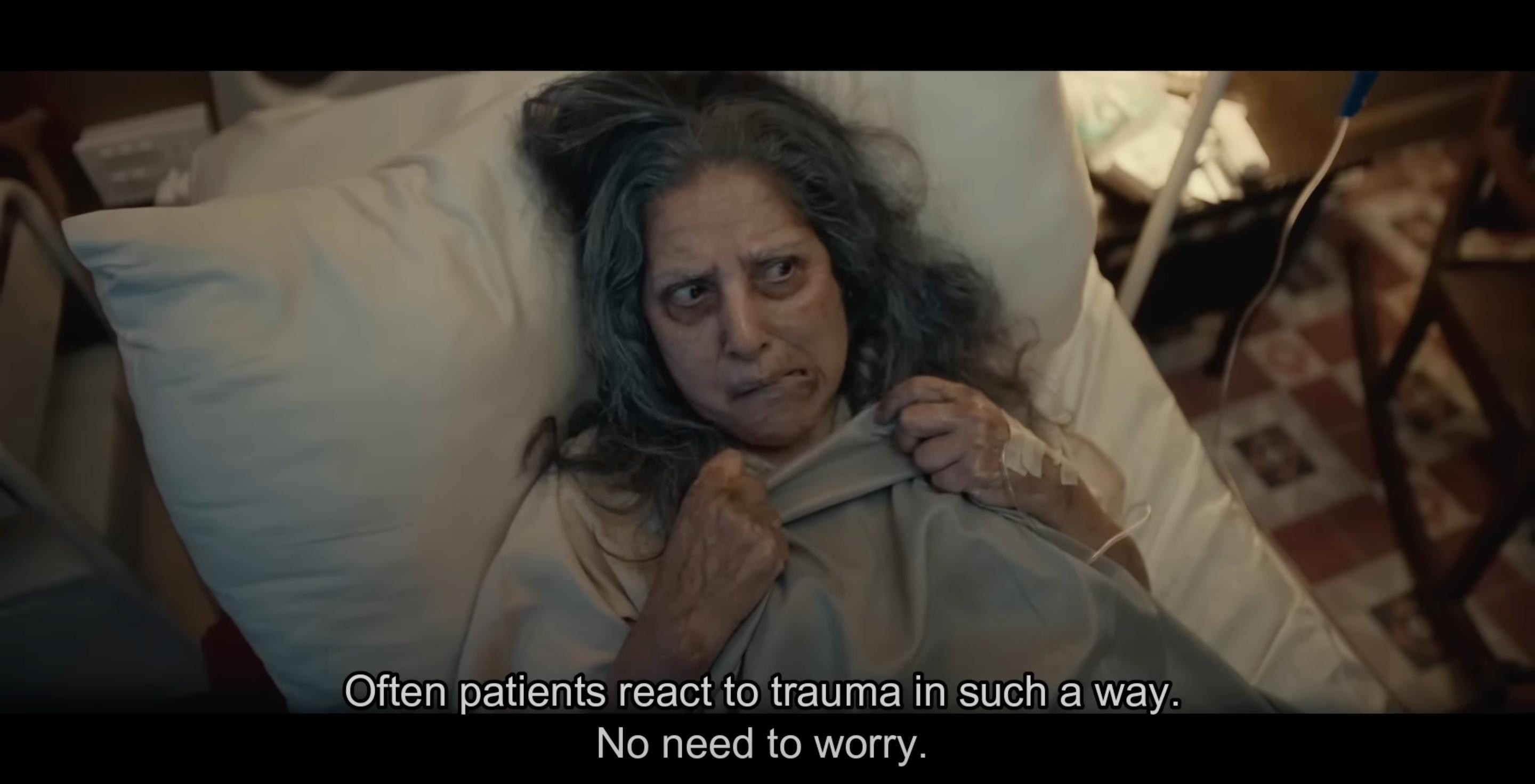
However, Deemak is anything but a comedy-horror. Cut the CGI ghosts, and you're left with a politically resonant, emotionally intelligent family saga — not groundbreaking, but grounded. The writing does well to reimagine a typical saas-bahu conflict as a multi-generational horror, haunted less by ghouls than by grief, control, and intergenerational rage.
Most remarkably, Samina delivers the performance of her career as the embittered mother-in-law who knows only how to wound those around her. Sometimes she’s domineering and ruthless, other times sickly and scheming, and by the second half, somehow all at once. Samina is also, single-handedly, Deemak’s most effective off-screen source of fear.
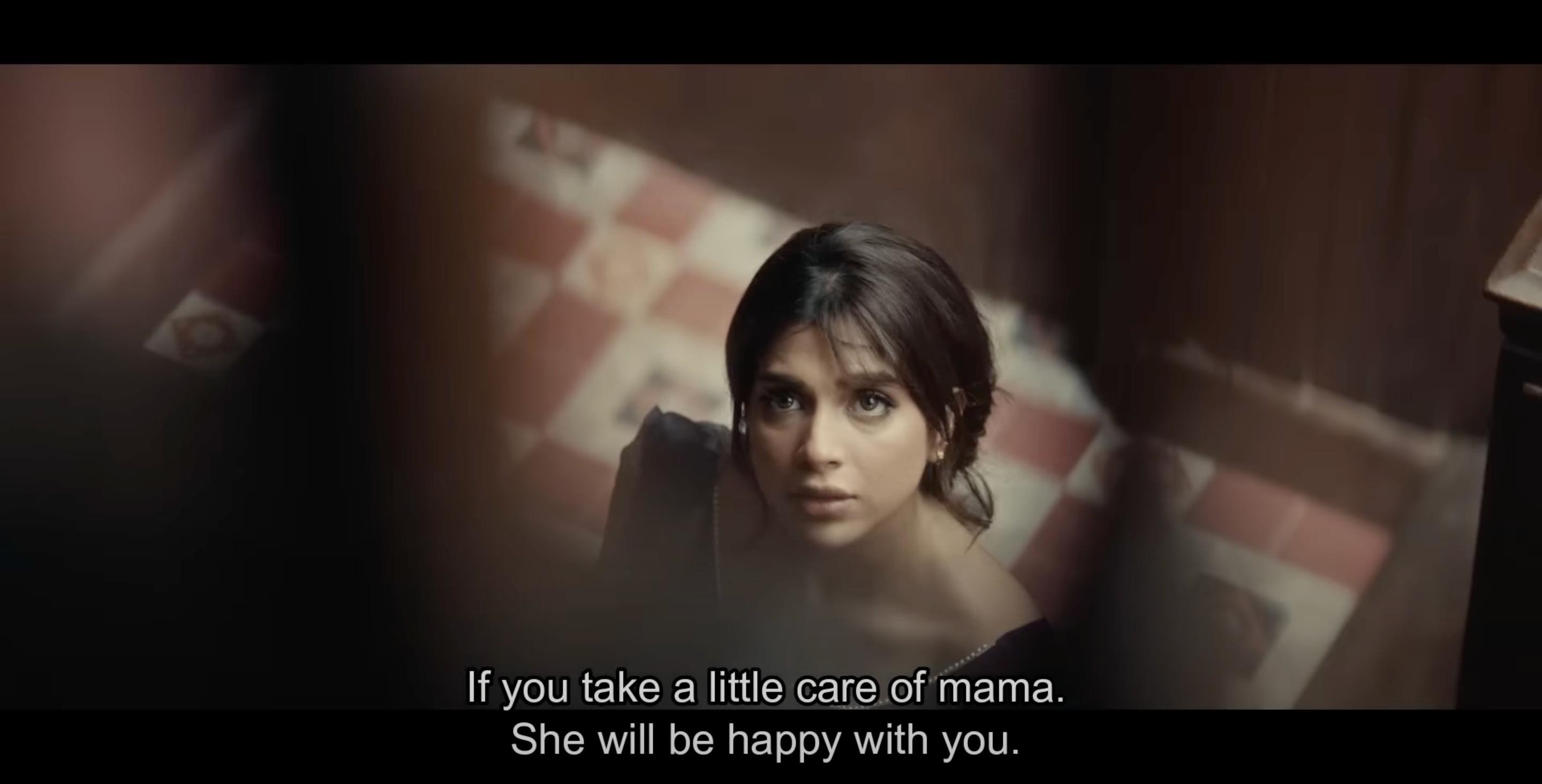
If Samina is gorgeously uninhibited, Sonya, as the begrudged daughter-in-law, cannot escape the demands of stardom. Most scenes find her composed and impeccably put together — not a hair out of place. It’s no secret that the pressure to look attractive often clashes with acting freedom. But Sonya may be a star beyond her looks. When she lets go of the prim, proper façade — her gel-manicured nails forgotten — and comes undone over a plate of bland rice and curry, she becomes something else entirely. With rice and grime smeared across her face, she looks simultaneously deranged and ethereal.
If horror is an ugly genre, Faysal gets the memo and enthusiastically complements Samina, his on-screen mother. Their dynamic as a possessive mother and protective son isn’t surprising, especially if you recall the 2008 supernatural drama The Ghost, a Pakistani TV adaptation of Danielle Steel’s novel. Set in an old, eerie Scottish castle, Faysal knows a thing or two about being haunted by the ghosts of the past when Samina is around. And boy, does it show. He’s livid, raging, and spooked — not by what he sees, but by what he remembers. For those wary of mama’s boys, watching Faysal’s patience snap as yesterday’s horrors bleed into the present adds the film’s richest layer of emotional complexity.
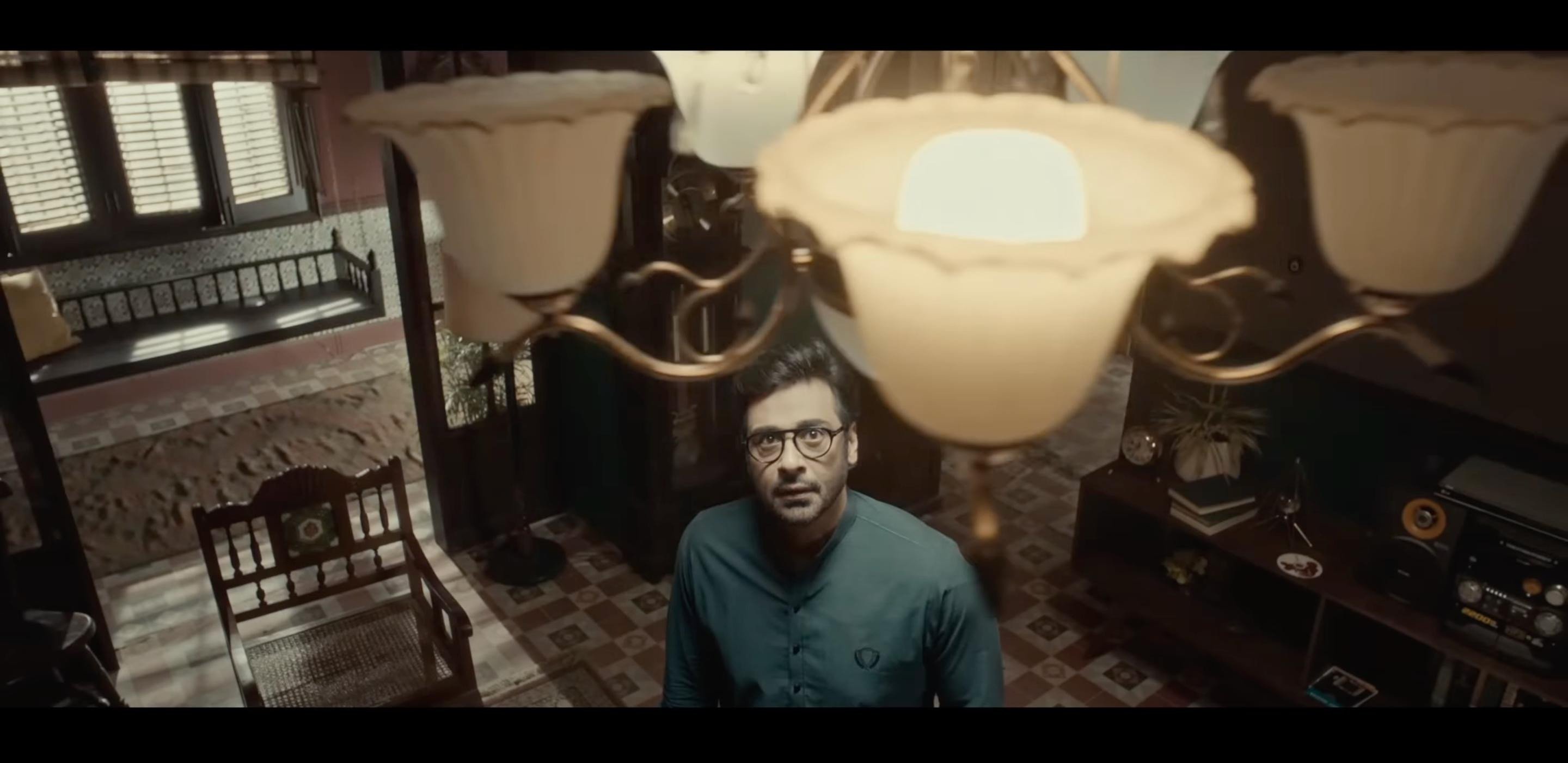
Missed opportunities
It is these powerful performances that dash any hope of passing Deemak off as a comedy horror. Unfortunately, this leaves us with an emotionally rich palette that cannot reconcile its comical reliance on ghosts without revealing an underlying confusion.
It’s not just that Deemak fails to scare — after all, few films genuinely do. The bigger indictment is that it haunts you in ways it never intended. While the frequent appearances of CGI ghosts are hard to ignore, the film feels burdened by a rigid allegiance to what a horror film should be. Cue the infamous scenes of people levitating off their beds, and the exorcist who spells out the supernatural menace for the audience.
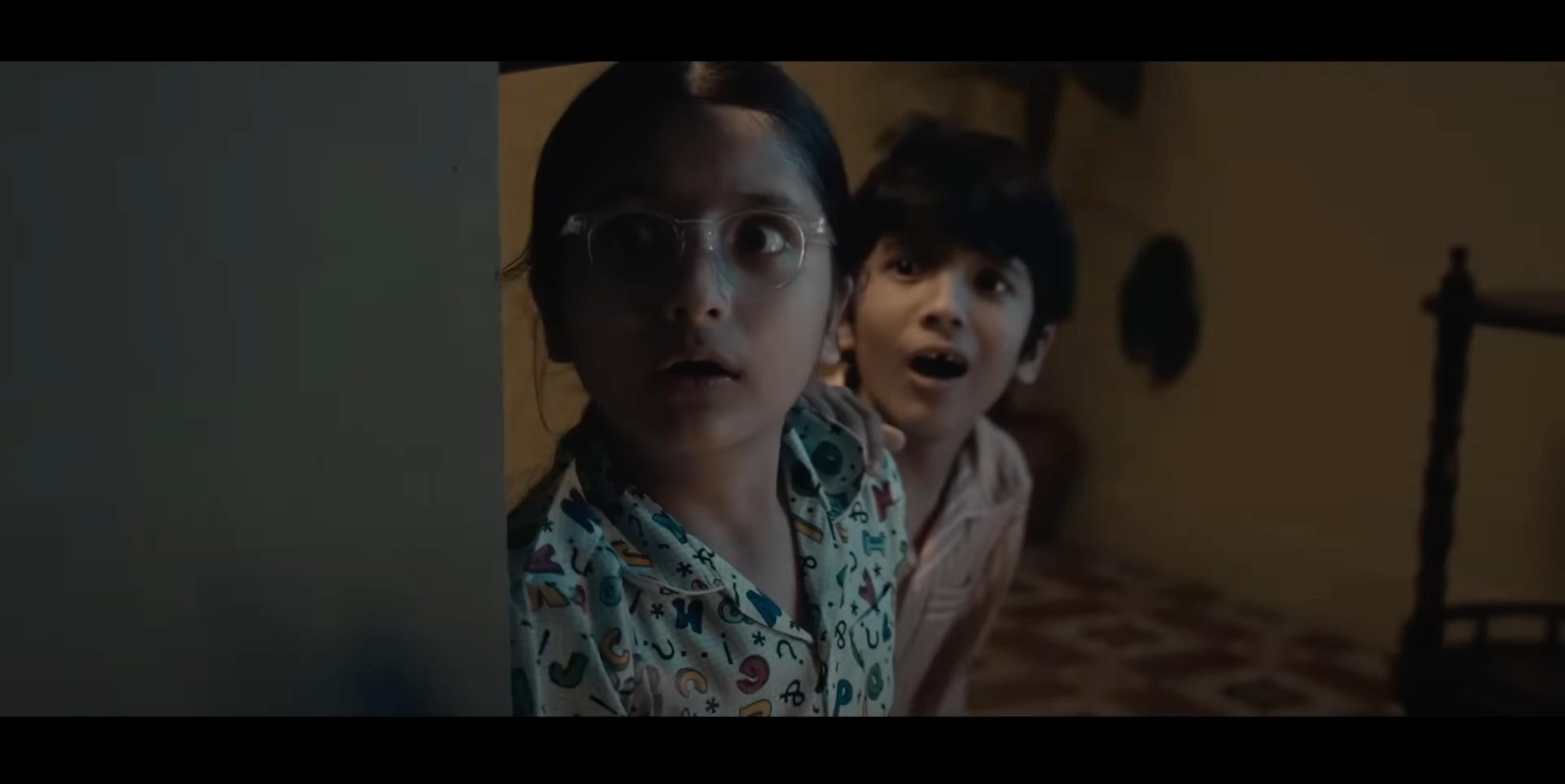
If the resources to execute special effects and clichés are sparse, a film like Deemak could arguably dispense with them altogether. Its primary audience is, after all, well-versed in the visual vocabulary of the unseen. We cherish our saints, myths, and spirits — even when they have no face or flesh. With the right direction, it’s clear that Deemak’s real horror lies in grief, not the ghosts.
Unfortunately, Deemak is unwilling to risk being misunderstood at any cost. But there’s only so much you can explain within a reasonably paced two-hour runtime before it borders on boring and pedantic.
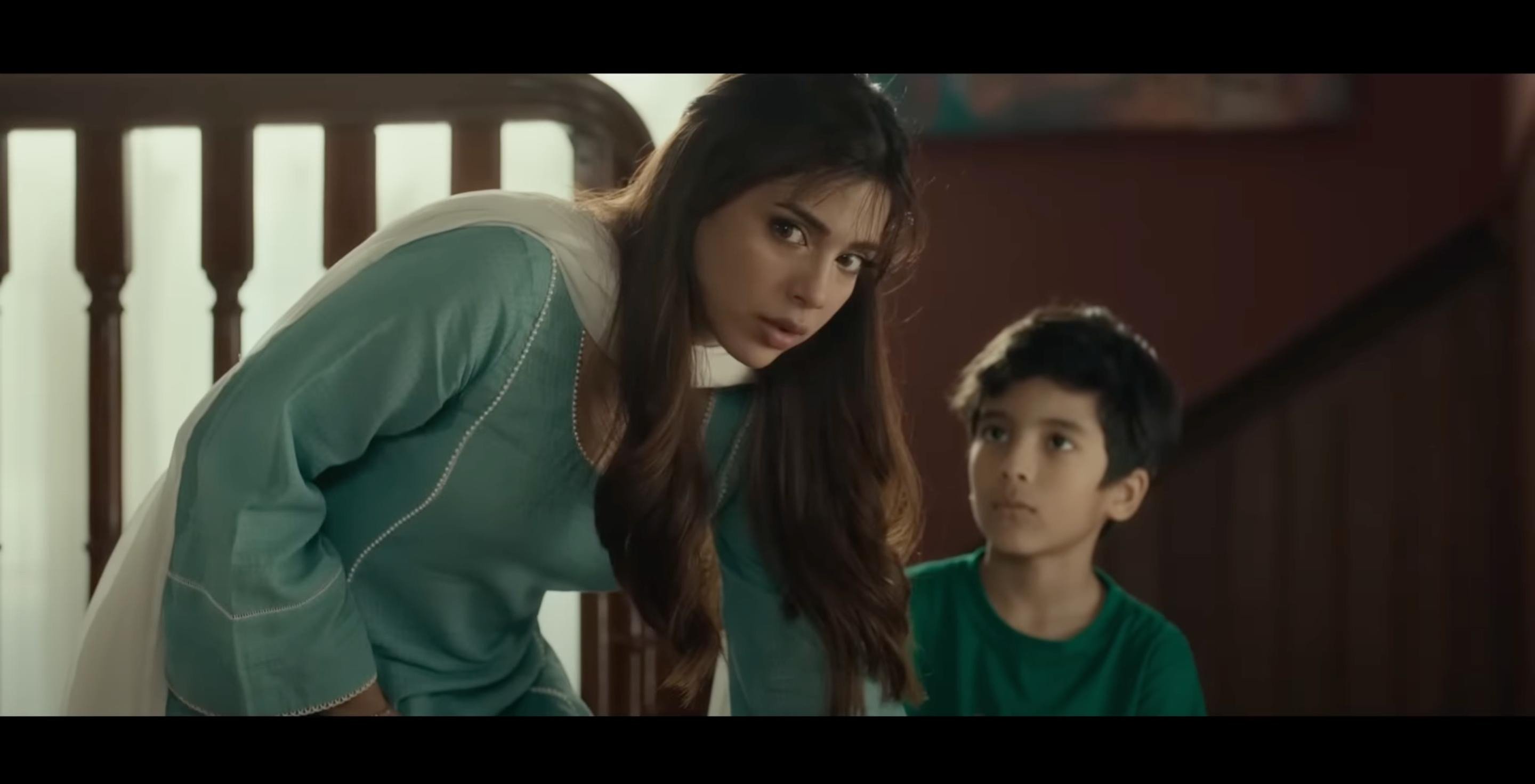
By the time Deemak ends, the leading trio will have delivered solid performances, bolstered by capable child actors and memorable turns from Bushra Ansari, Javed Sheikh, and Saman Ansari — all anchored by a promising emotional core. Yet, at the end of the day, Deemak remains a ghost story haunted by its own potential.
Have something to add to the story? Share it in the comments below.




















COMMENTS
Comments are moderated and generally will be posted if they are on-topic and not abusive.
For more information, please see our Comments FAQ